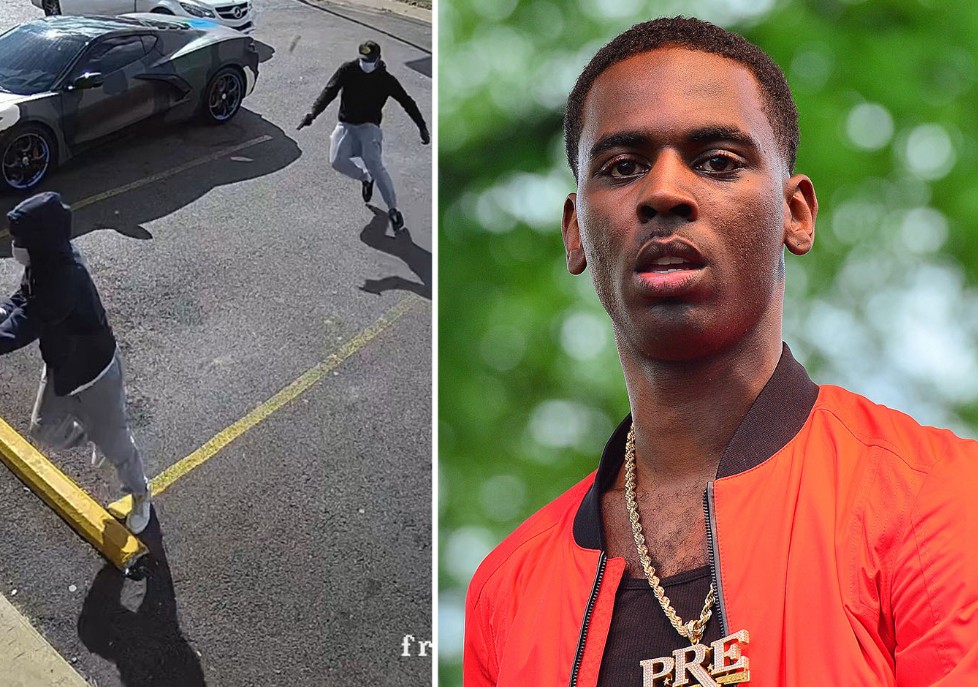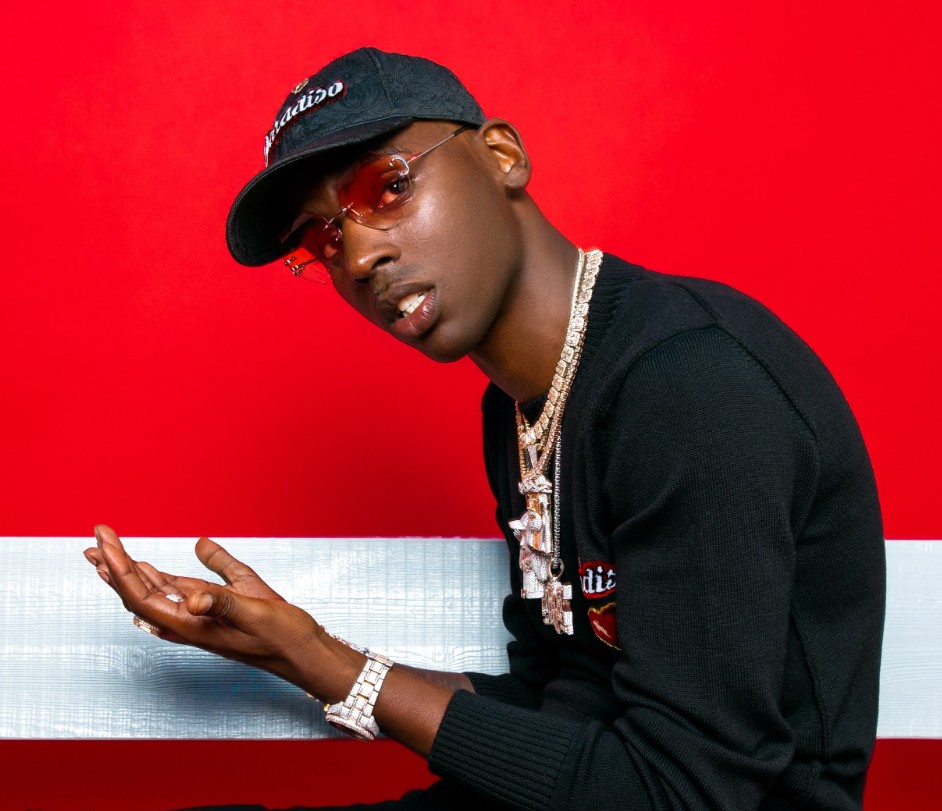Young Dolph Shooting Video and Hip-Hop Community
The trial of the man accused of orchestrating the daytime ambush killing of rapper Young Dolph has officially begun, marking a crucial moment in one of the most high-profile cases Memphis has witnessed in recent years. On August 18, 2025, Hernandez Govan, 45, appeared in a Memphis courtroom facing charges of first-degree murder, conspiracy to commit first-degree murder, and attempted murder. Prosecutors allege that while Govan did not personally fire the fatal shots, he directed the gunmen who carried out the attack. He previously rejected a plea deal offered by the state, determined to fight the allegations in court.

The killing of Young Dolph, born Adolph Thornton Jr., stunned both the music industry and the Memphis community. Known for his success as an independent rapper, label owner, and philanthropist, Dolph was admired not only for his artistry but also for his charitable work. His sudden death in November 2021 raised questions about the persistence of violent rivalries in hip-hop and the wider issue of gun violence in Memphis.
Contents
Background of the Murder and Video
On November 17, 2021, Young Dolph visited Makeda’s Homemade Butter Cookies, a local bakery he often frequented in Memphis. He had returned to his hometown to hand out turkeys to families in need for Thanksgiving, continuing a tradition of giving back to the community. That afternoon, gunmen ambushed him inside the shop, fatally shooting the 36-year-old rapper.
Young Dolph Shooting Video
young-dolph-shooting-video.mp4
The brazen attack in broad daylight shocked Memphis residents, who had long seen Dolph as one of their own. For the entertainment world, the murder was another reminder of the risks artists face when feuds escalate into violence. In Memphis alone, the scale of the problem was stark: more than 300 homicides were recorded in 2021, underlining the city’s ongoing struggle with violent crime.
Young Dolph’s Legacy
Beyond the headlines of his tragic death, Young Dolph left behind a powerful legacy. He began his career by releasing mixtapes, building a loyal fan base with his authenticity and grit. In 2016, he released his debut studio album King of Memphis, which solidified his position as a force in Southern rap.

Over the years, Dolph collaborated with some of the biggest names in the industry, including Key Glock, Megan Thee Stallion, Gucci Mane, 2 Chainz, and T.I. His music often celebrated independence and perseverance, reflecting his own journey as a self-made artist who resisted major label contracts in favor of running his own imprint, Paper Route Empire.
His commercial success was evident: three of his albums landed in the top 10 of the Billboard 200 chart, with Rich Slave in 2020 reaching as high as No. 4. His impact was also recognized at the 2022 Grammy Awards, where he was honored during the In Memoriam segment.
In Memphis, however, his influence went beyond music. He was admired for his generosity, from handing out turkeys to providing scholarships. His sister, Carlisa Brown, described his death in 2024 as a “very senseless murder” and emphasized the family’s desire for everyone involved to face justice.
Connection to Rivalries and Motives
From the outset, prosecutors have argued that the killing of Young Dolph was tied to long-running rivalries in Memphis rap circles. Central to this narrative is Anthony “Big Jook” Mims, an affiliate of Yo Gotti’s music label and a figure with his own reputation in Memphis. According to testimony, the conflict was sparked by diss tracks Dolph aimed at Yo Gotti’s circle, which prosecutors claim deeply angered Big Jook.
Cornelius Smith Jr., one of the admitted shooters, testified that Big Jook allegedly put out a $100,000 bounty on Young Dolph’s life, in addition to smaller bounties on other Paper Route Empire artists. This claim suggested that the killing was not a spontaneous act of violence but a calculated retaliation.
Adding to the complexity, Big Jook himself was shot and killed outside a restaurant earlier in 2025. His death only deepened speculation about the deadly cycle of revenge and feuds in Memphis’s rap scene.
The Role of Hernandez Govan
At the center of the ongoing trial is Hernandez Govan, who prosecutors say was responsible for orchestrating the entire hit. He is accused of providing crucial information to the shooters Cornelius Smith Jr. and Justin Johnson about Young Dolph’s presence in Memphis and the charity event he was attending.
According to Smith’s testimony, Govan hired him for the job, expecting to take a $10,000 cut from the payout. Smith stated that it was Govan who pointed out the opportunity when Dolph was in town, effectively setting the ambush in motion.
However, Govan’s defense has sought to distance him from the crime, claiming that he is being unfairly implicated based on shaky testimony. They argue that the state lacks concrete evidence beyond the words of individuals who may be trying to protect themselves.
Key Witness Testimony – Cornelius Smith Jr.
The most significant testimony against Govan has come from Cornelius Smith Jr., who admitted to being one of the shooters. Smith had already played a key role in securing the conviction of Justin Johnson, the other gunman, who was sentenced to life in prison in 2024.
In court, Smith testified that Govan told him and Johnson about Dolph’s schedule and personally hired them to carry out the hit. However, Smith’s credibility has been a major focus of the defense. He had previously suggested that Big Jook directly hired him, creating contradictions in his account.
Defense attorney Manny Arora pressed on these inconsistencies, pointing out that Smith had received between $38,000 and $50,000 from Big Jook’s attorney after his arrest, raising suspicions about his motives.
Smith admitted that he once heard Govan might be working with the FBI. Arora seized on this detail, questioning why Smith would work with someone under federal suspicion. Smith responded that Govan was “innocent until proven guilty,” a statement that did little to ease doubts about his reliability as a witness.
Defense Strategy for Govan
Govan’s defense has hinged on portraying Smith as unreliable and self-serving. By highlighting the inconsistencies in Smith’s testimony and pointing to the money he received after his arrest, Arora has attempted to undermine the prosecution’s narrative.
The defense insists that Smith has every incentive to shift blame onto Govan in hopes of securing a lighter sentence for himself. They also argue that the lack of physical evidence tying Govan to the crime leaves the case heavily dependent on one man’s word.
This strategy aims to cast reasonable doubt in the minds of jurors, positioning Govan not as the mastermind of the crime but as a scapegoat in a larger, murky web of rivalries and payoffs.
Previous Attacks on Young Dolph
The murder in Memphis was not the first time Young Dolph was targeted. In 2017, he was shot in Los Angeles after a confrontation reportedly linked to ongoing “beef.” He survived despite being critically injured. Earlier that same year, Dolph’s SUV was riddled with more than 100 bullets in another shooting. The vehicle, outfitted with bulletproof protection, saved his life.
These earlier attempts underscore the dangers Dolph faced due to his outspokenness and rivalries within the rap industry. They also highlight how his eventual murder in Memphis was not an isolated act but part of a disturbing pattern of violent threats against him.
Broader Impact on Memphis and the Hip-Hop Community
Young Dolph’s murder reverberated far beyond the walls of Makeda’s Cookies. For Memphis, it became a symbol of the city’s ongoing struggle with gun violence and the loss of young men to cycles of retaliation. City officials and community leaders pointed to the killing as a reminder of how deeply entrenched violence has become.
For the hip-hop community, Dolph’s death was both a tragedy and a wake-up call. As an independent artist who built his career outside the traditional label system, he had inspired countless others to follow their own path. His absence left a void not only in the music scene but also in the mentorship and opportunities he provided through Paper Route Empire.
The trial of Hernandez Govan is more than just a legal proceeding it is a moment of reckoning for Memphis and the hip-hop world. For Dolph’s family, the case represents the pursuit of justice for what his sister rightly described as a senseless murder. For the city, it is a test of whether accountability can be secured in the face of violent rivalries and deeply rooted cycles of crime.
As testimony unfolds, questions remain about the true masterminds behind the hit, the role of rivalries in fueling violence, and whether Dolph’s death could have been prevented. What is certain, however, is that Young Dolph will be remembered as more than a victim. He was a rapper who carved out his own success, a community leader who gave back generously, and a symbol of resilience in the face of adversity.
In death, as in life, his story continues to resonate reminding the world of both the fragility of success and the enduring need for justice.
Hot News -Stefano De Martino Video Viral and the Digital Age
Jessica Radcliffe Orca Attack Video and Stunned the Internet
Video De La Policia Mujer Viral (Female Police Officer)
Nikki Makeup Video Live Original and Hypnotic Incident
Video de Wendy Guevara and the Power of Social Media
Obdulia Sanchez Live Stream Video and Parole After Serving
Igor Pereira Girlfriend Face Video and Jealous Rage

